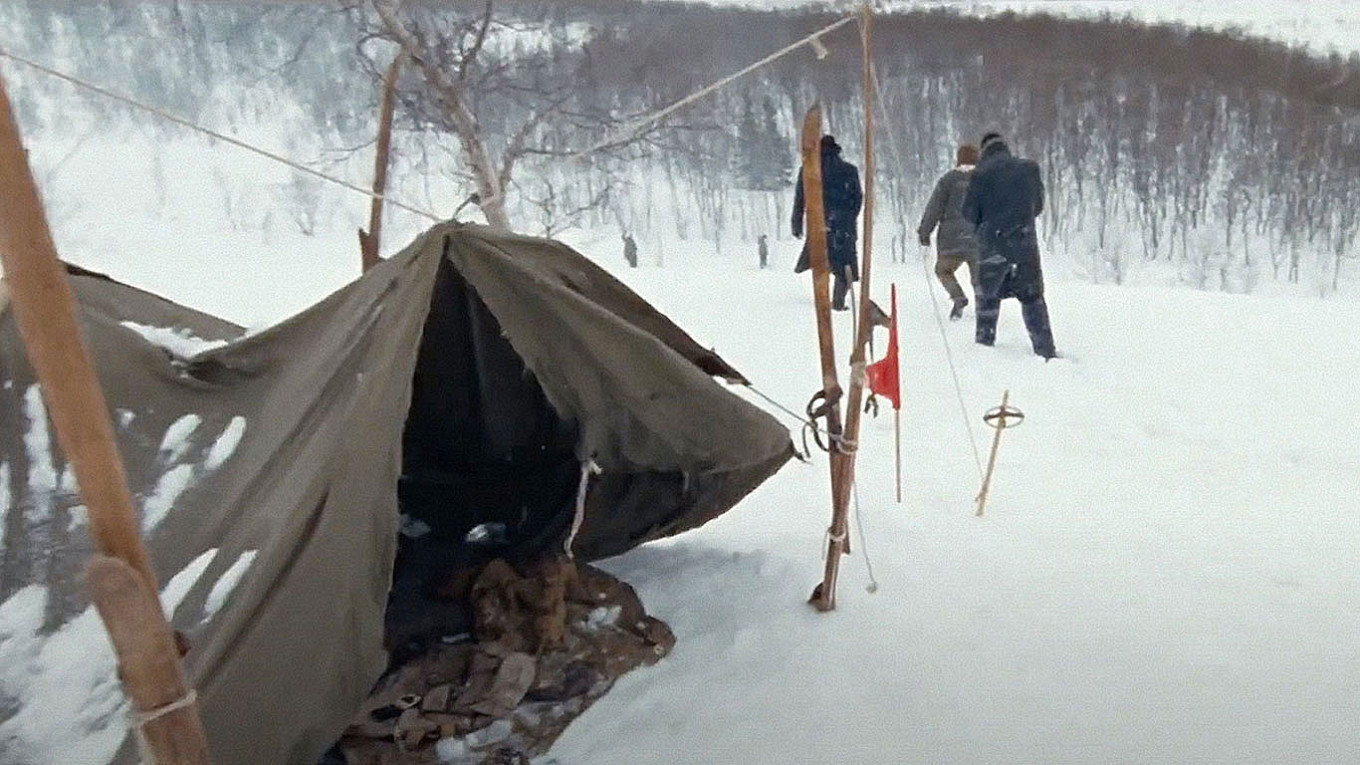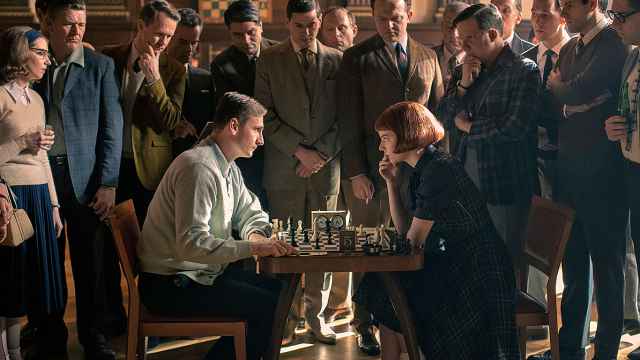On Jan. 27, 1959, nine very experienced, young hikers set off into the Ural Mountains a few hundred miles north of Sverdlovsk (now Yekaterinburg) on a two-week trek. None of them returned. Several weeks later their tent was found, half buried in snow and slit open from the inside, with the group’s possessions still neatly stored inside. Some bodies were found a few kilometers from the tent; they were half-dressed with some burns on their skin and hands. Several months later the other bodies were found in different places, four buried under nearly 15 feet of snow and with severe trauma to their ribs, skull and internal organs. Eyes and one person's tongue were missing.
The official Soviet investigation came to the remarkable conclusion that they had died due to an “unknown compelling natural force.” The mountain they died on was called Holatchahl in the language of the Mansi, the ethnic group that inhabited this region, which translates as “Dead Mountain.” Today it is called the Dyatlov Pass after Igor Dyatlov, the student hiker who led the trip.
The mystery of the Dyatlov Pass incident has occupied, if not obsessed, people ever since. Countless books and films have been made about it. There are several websites dedicated to it. Conspiracy theories number in the hundreds, most focusing on aliens and/or secret military testing (high radioactivity was registered on some of the bodies). This year even the National Geographic magazine and The New Yorker published articles on it, positing a theory about a particular kind of avalanche that would have been possible on the kind of gentle slope of the Urals mountain range.
At the end of 2020, Russian television aired an 8-part fictional series about the incident. The production team of Valery Fedorovich, Yevgeny Nikishov and Ilya Kulikov were given access to all the materials, including classified materials, from the 1959 investigation and everything from the re-investigation done over the last 20 years. They also had access to the diaries written by the hikers, who were all university students or recent graduates, with one older hiker included on orders of the outdoor club that approved the trek.
In the series, a KGB major named Oleg Kostin (played by Pyotr Fyodorov) arrives in Sverdlovsk to investigate the case. His fedora pulled low, he announces that he doesn’t exist but will be in charge of the investigation, with the help of the local KGB and a war-widow medical examiner. The odd-numbered episodes follow the investigation, which zigzags from place to place, following red herrings and dead ends, and solving other crimes along the way. The action moves back and forth in time, flashing back to the war years and unspeakable atrocities in a mysterious castle. There are premonitions, coincidences, omens and protective charms. Mysterious lights are seen hovering over the site. People from the past and present are connected to each other, whether they know it or not.
The even-numbered series follow the hikers, from their excitement at the university — and the disappointment of another young hiker named Boris, who is too late to join in, thus being saved for a more important fate — through singing on the train, gossiping about possible romances, and their strange encounters with the local people. The series was filmed in an unusual way: Pavel Kostomarov, a celebrated cinematographer, shot all the series about the hikers in black and white; while Yevgeny Nikishov and Valery Fedorovich shot the series that follow the investigation, largely in color. Some parts were shot on digital; others were shot on film. These jumps in film style, time and place, color and black and white — jarring and almost physically uncomfortable — add to the suspense, which is in itself odd, since from the start we know what happens, and each series about the hikers begins with the countdown in days or hours until their deaths.
The series won a number of awards in Russia, and the rights were bought by foreign distributors. It will be screened under the name “Dead Mountain – The Dyatlov Pass Incident” with excellent subtitles in the U.S. on Topic, beginning Sept. 2, and then on SBS in Australia, ERR in Estonia and Cirkus in the Nordics. You can see it in Russian on the TNT site.
A Message from The Moscow Times:
Dear readers,
We are facing unprecedented challenges. Russia's Prosecutor General's Office has designated The Moscow Times as an "undesirable" organization, criminalizing our work and putting our staff at risk of prosecution. This follows our earlier unjust labeling as a "foreign agent."
These actions are direct attempts to silence independent journalism in Russia. The authorities claim our work "discredits the decisions of the Russian leadership." We see things differently: we strive to provide accurate, unbiased reporting on Russia.
We, the journalists of The Moscow Times, refuse to be silenced. But to continue our work, we need your help.
Your support, no matter how small, makes a world of difference. If you can, please support us monthly starting from just $2. It's quick to set up, and every contribution makes a significant impact.
By supporting The Moscow Times, you're defending open, independent journalism in the face of repression. Thank you for standing with us.
Remind me later.







